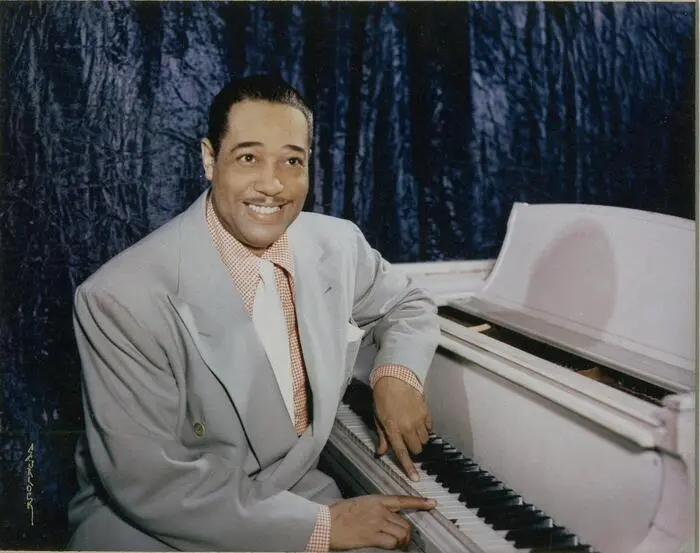Music has been an integral part of American culture for centuries, intertwining with the nation’s social, political, and cultural fabric. Since its inception, American music has served as a mirror reflecting the country’s triumphs and tribulations, its struggles and successes. From the sorrowful refrains of slave spirituals to the jubilant melodies of the Harlem Renaissance, music has provided a voice for the voiceless and a platform for marginalized communities to express their experiences and aspirations.
Throughout its history, American music has also been a catalyst for change, challenging conventions and pushing boundaries. From the early pioneers of jazz who defied racial segregation to the rock ‘n’ roll rebels who shook up the status quo, artists have used their music as a tool for social commentary and activism. Whether it’s the protest songs of the civil rights era or the politically charged lyrics of contemporary hip-hop, American music has consistently reflected the nation’s ongoing quest for justice, equality, and freedom.
In addition to its cultural significance, American music has also had a profound impact on the global stage, influencing musicians and audiences around the world. From the British Invasion of the 1960s to the global dominance of hip-hop in the 21st century, American artists have shaped the course of popular music, setting trends and pushing the boundaries of artistic expression.
Indeed, curating a playlist of the best American songs of all time is no easy feat, given the vast array of genres, styles, and artists that populate the nation’s musical landscape. However, by enlisting the expertise of specialists and music aficionados, we can embark on a journey through the sounds that define America’s rich and diverse musical heritage.
The Roots of American Music: From Blues to Jazz
The foundation of American music lies in the rich tradition of blues and jazz, which are deeply rooted in the experiences of African-American communities in the South. Born out of the harsh realities of slavery, segregation, and discrimination, these genres served as potent forms of expression for the joys and sorrows, the triumphs and tribulations of Black life in America.
Similarly, jazz emerged as a vibrant celebration of resilience and creativity, blending African rhythms with European harmonies to create a wholly unique and electrifying sound. From the smoky clubs of New Orleans to the bustling streets of Harlem, jazz became a cultural phenomenon that transcended racial and social boundaries, bringing people together in the universal language of music.
Songs like Robert Johnson’s “Cross Road Blues,” with its haunting vocals and haunting imagery, and Duke Ellington’s “Take the ‘A’ Train,” with its infectious swing and sophisticated arrangements, epitomize the essence of blues and jazz. They capture the raw emotion, the improvisational brilliance, and the indomitable spirit of a people determined to make their voices heard through the power of music.
The Golden Age of Rock ‘n’ Roll
In addition to their electrifying energy and rebellious spirit, the songs of Elvis Presley, Chuck Berry, and Buddy Holly became anthems of youth culture, rebellion, and freedom during a transformative period in American history. As teenagers across the nation embraced the new sounds of rock ‘n’ roll, these artists became symbols of a generation breaking free from the constraints of the past.
And also, embracing a new era of self-expression and individualism. Presley’s gyrating hips and infectious charisma challenged societal norms, Berry’s innovative guitar riffs paved the way for future rock legends, and Holly’s boyish charm captivated audiences worldwide. Their impact transcended mere musicality.
They became cultural icons whose influence can still be felt today in the attitudes, styles, and sounds that define American popular culture. As such, their contributions to the golden age of rock ‘n’ roll extend far beyond their timeless hits, shaping the cultural landscape of an entire generation and leaving an indelible mark on American music history.
Protest and Progress: Folk and American Civil Rights
During the tumultuous 1960s, folk music became a powerful vehicle for social and political commentary, with artists like Bob Dylan and Joan Baez leading the charge for change. Dylan’s “Blowin’ in the Wind” and Baez’s rendition of “We Shall Overcome” became anthems of the civil rights movement, rallying supporters and inspiring solidarity in the face of injustice.
These songs not only reflect the struggles of their time but also serve as timeless reminders of the power of music to effect social change. They provided a voice for the voiceless, echoing the sentiments of marginalized communities and challenging the status quo. In an era marked by unrest and uncertainty, folk music emerged as a beacon of hope and resilience, offering solace and inspiration to those fighting for a more just and equitable society.
Urban Rhythms and Rhymes: The Birth of Hip-Hop
In the streets of New York City during the 1970s, a new musical movement was born that would revolutionize the global music landscape: hip-hop. Artists like Grandmaster Flash, Run-D.M.C., and Public Enemy brought urban rhythms and rhymes to the forefront, addressing issues of inequality, violence, and identity with unparalleled lyricism and swagger.
Tracks like Grandmaster Flash and the Furious Five’s “The Message” and Run-D.M.C.’s “Walk This Way” not only defined an era but also laid the groundwork for the cultural phenomenon that is hip-hop today. These pioneering artists transformed turntables into instruments of social commentary.
By sampling beats and blending genres, they created a sound that spoke directly to the experiences of marginalized communities. Hip-hop’s influence extends far beyond music, permeating fashion, art, and language, and its legacy continues to inspire artists and activists worldwide.
Pop Perfection and Contemporary Classics
American music continues to evolve and innovate, with pop icons like Michael Jackson, Madonna, and Beyoncé dominating the charts and shaping popular culture. From Jackson’s groundbreaking “Thriller” to Madonna’s boundary-pushing “Like a Prayer” and Beyoncé’s empowering “Single Ladies (Put a Ring on It),” these songs represent the pinnacle of pop perfection, captivating audiences with their infectious hooks, captivating performances, and larger-than-life personas.
These artists not only pushed the boundaries of music but also challenged societal norms, using their platform to address issues of race, gender, and identity. Michael Jackson’s groundbreaking music videos transformed the medium into an art form, while Madonna’s provocative imagery sparked conversations about feminism and sexuality.

Beyoncé, with her unapologetic celebration of black excellence and female empowerment, continues to inspire a new generation of artists and activists. As we reflect on these contemporary classics, we are reminded of the enduring power of American music to provoke thought, inspire change, and unite us in our shared humanity.
Conclusion: American Playlist with all the Big Names
From the smoky blues bars of the Mississippi Delta to the glittering stages of Madison Square Garden, American music has captivated audiences around the world with its diversity, creativity, and passion. It serves as a reflection of the country’s complex history, embodying the struggles, triumphs, and aspirations of its people.
From the soul-stirring melodies of spirituals sung by enslaved Africans to the infectious beats of contemporary pop, American music continues to evolve and adapt, drawing inspiration from a multitude of cultural influences. While it’s impossible to capture the full breadth and depth of this musical legacy in a single playlist, the songs selected by specialists offer a glimpse into the soul of a nation—a nation united by its love of music and its enduring spirit of innovation.
These songs serve as touchstones, connecting listeners across generations and transcending barriers of time and space. They remind us of the power of music to inspire, heal, and unite, serving as a beacon of hope in times of darkness and uncertainty. As we listen to these timeless classics, let us celebrate the rich tapestry of American music and the countless artists who have contributed to its greatness.
From the pioneers who paved the way for future generations to the emerging voices pushing boundaries and challenging conventions, American music remains a testament to the boundless creativity and resilience of the human spirit. After all, in the words of Louis Armstrong, “What we play is life,” and through music, we find meaning, connection, and joy.


